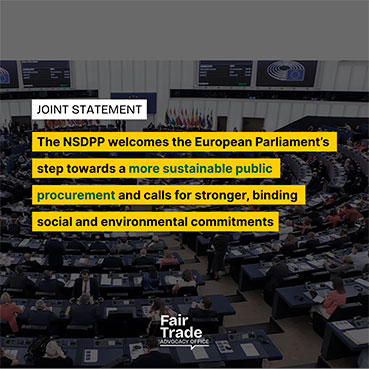The European Parliament adopted a Resolution on public procurement (2024/2103(INI)) setting out priorities for the upcoming review of EU directives in this field. The text, approved on 9 September, aims to simplify the rules, strengthen the Union’s economic resilience, and promote more sustainable, transparent, and accessible procurement for small and medium-sized enterprises (SMEs).
The non-legislative resolution includes key recommendations such as simplifying and standardizing procedures, introducing common guidelines and templates, and using EU trade defense instruments against unfair practices by third countries.
It proposes giving priority to the best value for money (MEAT criterion) over purely economic considerations, promoting the systematic integration of social and environmental standards in tenders. The European Parliament specifically calls for greater professionalization of contracting authorities by improving training on non-price-based criteria.
The Parliament also emphasizes the need to strengthen Europe’s economic resilience by supporting critical and emerging industries and promoting the development of a strong industrial base within the EU.
It further calls for the inclusion of award criteria that value innovation and quality, particularly to benefit SMEs and social enterprises. The resolution also suggests updating procurement thresholds to reflect inflation and rising costs, granting greater autonomy to public authorities, and allowing more flexibility in contract management.
In addition, the text pays special attention to subcontracting, urging greater transparency throughout the supply chain and considering a system of joint liability between contractors and subcontractors.
The Network for Sustainable Development in Public Procurement (NSDPP), a coalition of NGOs, trade unions, and social economy organizations, welcomed the resolution. Although it considers the voluntary approach still insufficient, it sees it as a step forward toward more sustainable and inclusive public procurement.
The group welcomes the Parliament’s emphasis on prioritizing best value for money and on using social and environmental criteria. This means that tenders should be evaluated not only on cost but also on additional factors such as quality and continuity of supply in complex and essential services.
The NSDPP also highlights the Parliament’s recognition of the role of SMEs and social enterprises, as well as the importance of reserved contracts to promote the labor inclusion of disadvantaged people. The coalition welcomes the defense of the horizontal social clause and the commitment to anchor public procurement in respect for labor rights and sustainability. In this regard, it particularly welcomes the call for the Commission to assess the creation of a Sustainability Criteria Toolbox to provide legal certainty to public buyers.
Finally, the coalition hopes that the report’s provisions will serve as a basis for the Commission’s next proposal, paving the way for a transition from voluntary social and environmental criteria toward a more binding and ambitious framework for sustainable public procurement across the European Union.
“This is essential to ensure that public procurement actively contributes to the creation of quality jobs, the maintenance of high social and environmental standards, and the strengthening of competitiveness and social well-being in the EU,” the NSDPP concludes.







